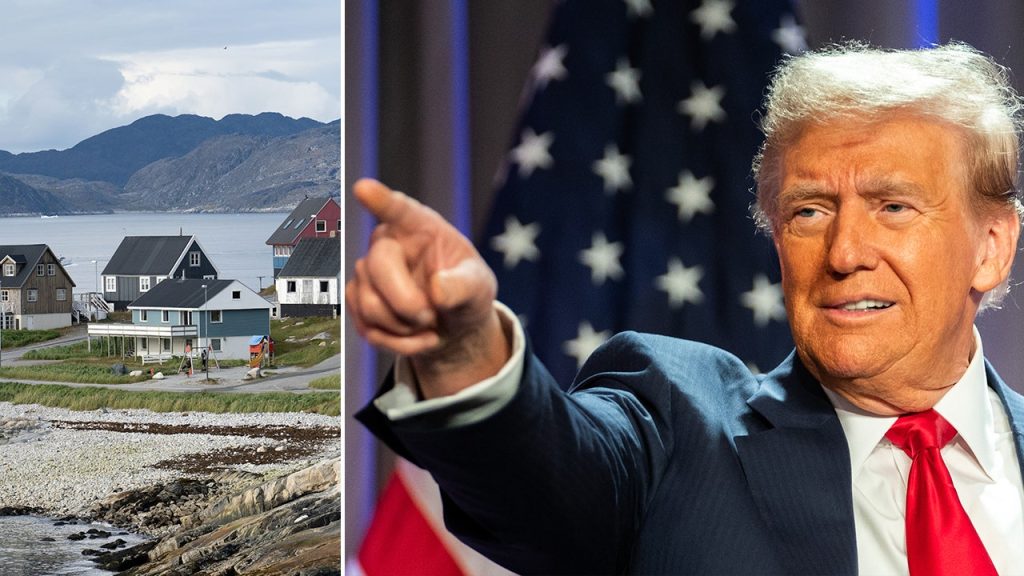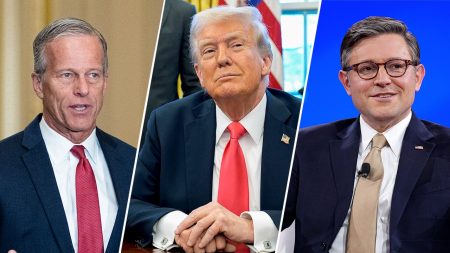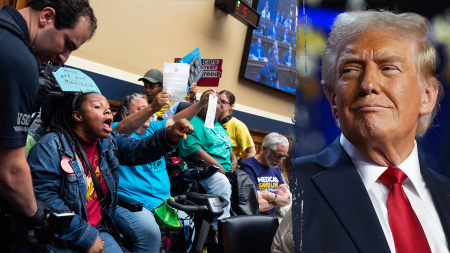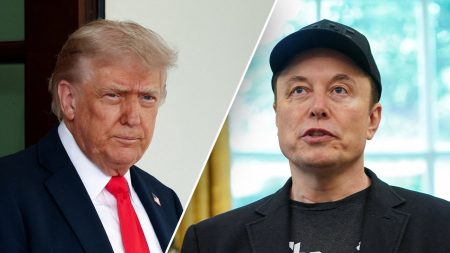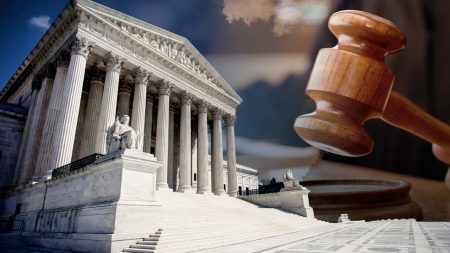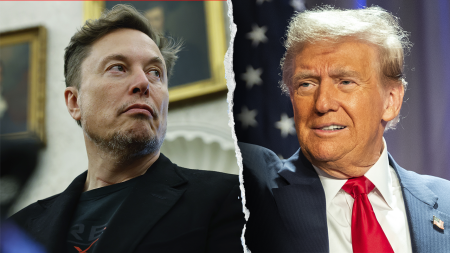Donald Trump’s pronouncements and actions, even after leaving office, continue to generate controversy and capture headlines. His recent assertions regarding Greenland, the Panama Canal, and Republican dissenters highlight his disruptive approach to politics, an approach that often blurs the lines between legitimate negotiation tactics and attention-grabbing theatrics. Trump’s revisited interest in acquiring Greenland, a territory under Danish control, and his threat to reclaim the Panama Canal unless shipping fees are lowered, revive past diplomatic disputes and underscore his penchant for bold, often unrealistic demands. While these pronouncements are unlikely to yield tangible results, they serve to solidify his image as a challenger to the established order, appealing to a segment of his base that appreciates his unconventional and assertive style.
The former president’s willingness to target members of his own party further exemplifies his disruptive tendencies. Threatening primary challenges against Republicans who opposed his demands on a government shutdown bill demonstrates his readiness to prioritize personal loyalty over party unity. This behavior not only exacerbates internal divisions within the GOP but also raises questions about the future of bipartisan cooperation. If Trump continues to exert influence within the Republican Party, Democrats may find it increasingly difficult to negotiate with a party whose members fear reprisals for crossing the former president.
While Trump’s pronouncements often seem outlandish and impractical, they serve a strategic purpose. By consistently pushing boundaries and provoking strong reactions, he dominates the news cycle, ensuring that his voice remains prominent in the public discourse. He recognizes that even negative coverage can be advantageous, keeping him at the forefront of people’s minds and reinforcing his image as a fighter against the perceived “Washington establishment.” This strategy, however, carries significant risks. By constantly escalating tensions and disrupting established norms, Trump risks undermining the very institutions he claims to be reforming.
Beyond his public pronouncements, Trump’s actions demonstrate his willingness to upend carefully negotiated bipartisan agreements. His interference in a recent government shutdown bill, after allowing it to become laden with various provisions, underscores his tendency to prioritize personal objectives over collaborative governance. This behavior further complicates the already challenging task of finding common ground in a deeply polarized political landscape. The willingness of some Republicans to defy Trump on crucial issues like the debt ceiling suggests that his influence, while substantial, has limitations. However, the delicate balance of power within the GOP makes it difficult for many members to openly oppose him, fearing the potential consequences for their political careers.
Trump’s disruptive approach extends beyond domestic policy to international affairs. His rhetoric and actions can strain relationships with allies and adversaries alike, creating uncertainty and instability. While his supporters may view his assertive style as a sign of strength, critics argue that it undermines diplomatic efforts and jeopardizes international cooperation. The long-term implications of Trump’s disruptive approach remain to be seen. Whether his influence within the Republican Party will wane or grow, and whether his legacy will be one of positive change or lasting division, are questions that will continue to be debated for years to come.
Meanwhile, other news stories, while perhaps overshadowed by Trump’s actions, reveal significant ethical and societal issues. The House Ethics report on Matt Gaetz, detailing allegations of sexual misconduct and drug use, highlights the importance of accountability for elected officials. The case of Texas Representative Kay Granger, who reportedly resided in a nursing facility specializing in memory care while remaining silent about her health challenges, raises questions about transparency and the public’s right to know. Blake Lively’s allegations of sexual harassment against her co-star and director shed light on the pervasive nature of such behavior in the entertainment industry, while Jeff Bezos’s denial of a tabloid story about his wedding plans demonstrates the importance of media literacy in the age of misinformation. These stories, alongside Trump’s ongoing political maneuvers, provide a glimpse into the complex and ever-evolving landscape of American society and politics.




